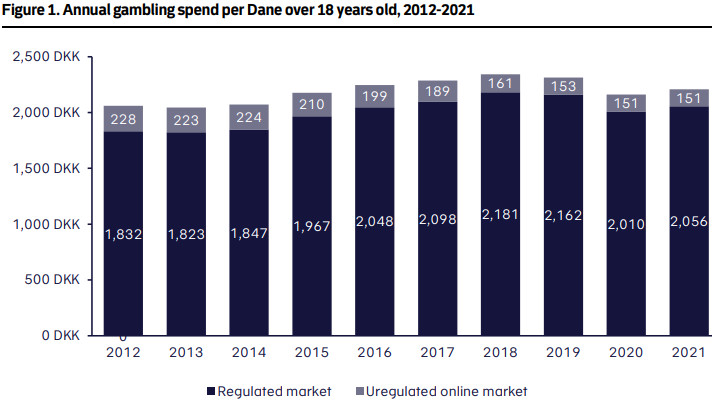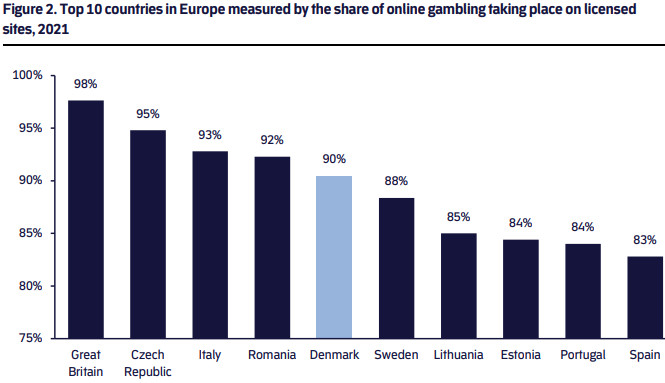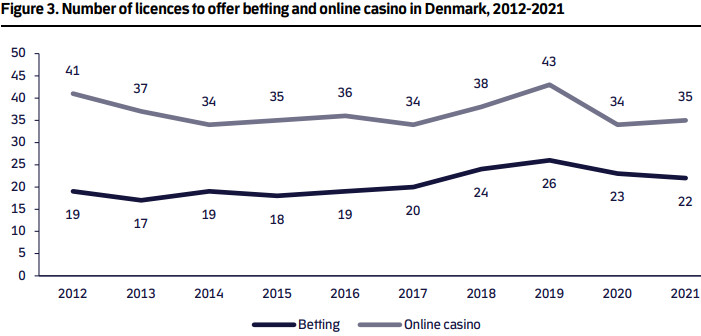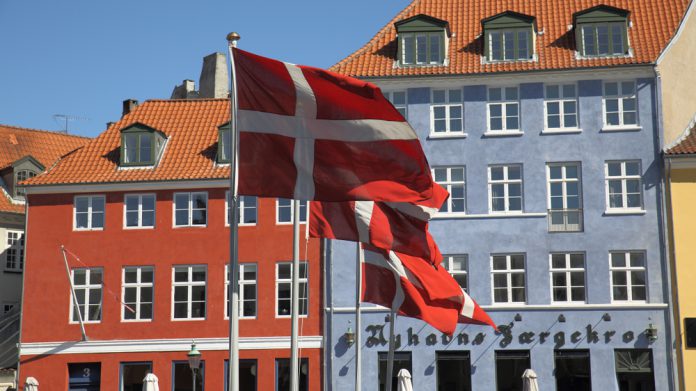“It clearly shows that the mission has been successful,” noted Anders Dorph, director of the Danish Gambling Authority, after the regulator undertook a ten-year market review of the country’s online gambling ecosystem.
In 2012, online sports betting and igaming went from being subject to a state monopoly to being liberalised, with the DGA stating that data demonstrates that not only has gambling spend increased during that time but that this has duly moved to licensed sites.
From 2012 to 2021 gambling spend at online casinos increased from DKK 1.6bn (£187.89m) to DK 3.3bn (£387.53m), with players’ outlay on betting up 53 per cent during the same time frame that witnessed physical gaming machines record a 59 per cent fall.
Over the course of the 10 years, the total gambling market has increased from DKK 9bn (£1.05bn) to DKK 10.3bn (£1.2bn), which corresponds to a rise of 14.4 per cent.
Breaking this down per Dane per year, annual average gambling spend has increased from DKK 2,060 (£214.75) in 2012 to just under DKK 2,210 (£359.35) in 2021.

“The average gambling spend was generally increasing up until 2018. In the following years, there was a slight fall in the average gambling spend, which can be attributed to COVID-19 measures which affected the markets for betting, gaming machines and land-based casinos,” the DGA noted.
Adding: “In the same period, however, Danes have also become wealthier. The gambling spend therefore accounts for approximately the same share of the Danish economy today as before liberalisation.”
The DGA also noted that spend via the unregulated market has been decreasing for a number of years, with an average of DKK 2,056 (£241.31) said to have been spent on the regulator market through 2021 versus DKK 151 (£17.73).

“One of the most important reasons for the partial liberalisation of the Danish gambling market 10 years ago was that the Danes wanted to gamble on a wider range of games, and therefore demanded games from private gambling operators who offered online games,” commented Dorph.
“These providers were not subject to Danish regulations and therefore did not pay gambling taxes to the state. It also meant that they did not have to comply with the Danish rules on consumer protection and responsible gambling.”
Furthermore, in 2011 it was reported that around 40 per cent of Danish online gambling took place with operators with a licence in Denmark.
“This figure has risen steadily since the liberalisation”, noted the DGA, with this standing at more than 90 per cent last year. In 2021, there were a total of 57 licences issued by the Danish Gambling Authority to offer betting and online casinos.

“It clearly shows that the mission has been successful,” added Dorph. “At the Danish Gambling Authority, we are very happy that Danes prefer gambling sites with a Danish licence. It is operators that we supervise and we check whether they comply with the applicable legislation.
“We are proud that Denmark is one of the countries with the highest share of online gambling with licensed operators. In Europe, we have been surpassed by only a few countries.”











